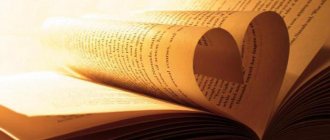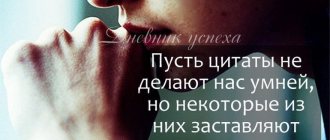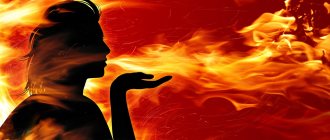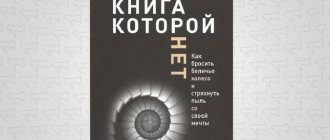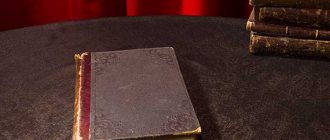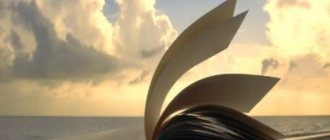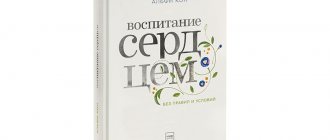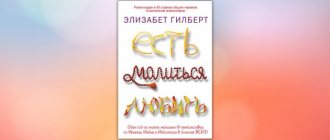Don't get lost in something that simply isn't there...
You’ve just figured out what’s what in this life, grown smarter and wiser, when someone from above suddenly decides that it’s time to go out - to where no one has returned from. Everyone ever asks the question: why success, love, suffering, if you still have to die? Perhaps one of the books listed will answer this question.
"The diving suit and the butterfly." Jean-Dominique Bauby
Jean-Dominique Bauby, or Jean-Do as his loved ones called him, was the handsome and charismatic editor-in-chief of the French fashion magazine Elle. He loved fast cars, good humor, gourmet food and social life, until one day he was completely paralyzed as a result of a stroke.
Jean-Do could not eat or breathe on his own, his body did not move, but his mind remained bright. He could communicate with the world only by blinking his left eye. But Bobi did not give up, but decided to write an autobiographical book, “The Diving Bell and the Butterfly,” about what it was like to be a prisoner of his own body. To do this, he needed 200,000 blinks and the help of a nurse who recorded eye movements.
In the title of his autobiography, Bauby compares his body to a heavy diving suit, inside of which pure consciousness flutters like a fragile butterfly. The book demonstrates the enormous power of the mind, its triumph over unbearable circumstances, and is written so beautifully that everyone should read it.
"Yes" man
Author: Danny Wallace.
Do you often say “no” to your friends, loved ones, passers-by on the street, or even to yourself?
So the main character is used to answering everything with a refusal. And one day, on the road to nowhere, a random person forced him to completely change his life...
Try an experiment: forget the word “no” and agree to everything that your destiny offers you (within reason, of course).
An experiment for those who are tired of being afraid of everything and tired of the monotony of their lives.
"Nausea". Jean-Paul Sartre
“Nausea” is written in the form of a diary kept by a young man. He is aware of the banality and emptiness of existence, ruthlessly cataloging all his thoughts about the world and the people around him.
The issue of human freedom is central to the book. Sartre believed that freedom is two-faced: on the one hand, it provides unlimited opportunities, on the other, it implies enormous responsibility, which is often perceived as a burden, and forces a person to avoid it, and therefore to give up freedom. “Nausea” is depressing, but at the same time it encourages us to give meaning to our own existence.
Jean-Paul Sartre is a French philosopher and writer, a representative of existentialism. He was awarded the Nobel Prize for Literature in 1964, but declined it for personal reasons.
Tender is the Night, Francis Scott Fitzgerald
The main idea of this novel is the loss of oneself, the transformation of one’s life into a boring and extraordinary existence. Its main characters, the gifted surgeon Dick and the wealthy patient Nicole, even with sufficient funds, position in society, and constant travel, do not represent anything truly worthwhile. They simply spend their lives in inactivity, laziness and relaxation. At the same time, the book also contains those heroes who are trying to change their lives. However, is it possible to do this, and most importantly, is it worth it if a person does not want it at all? This is exactly what Francis Scott is talking about.
“The Core Doesn’t Hold: Notes on My Schizophrenia.” Elin Sachs
Elin Sachs has doctorates in law, psychology, psychiatry and behavioral sciences, is the director of her own Institute for Mental Health Law, Policy and Ethics, and has schizophrenia. Already as a teenager, she heard voices urging her to harm herself and others. Throughout his life, Sachs struggled with psychotic episodes and fantasies of suicide.
"The Core Can't Hold: Notes from My Schizophrenia" is a gripping and moving story about what it's like to live in an alternate universe while achieving success, recognition and love in the real world.
"Pollyanna." Elinor Porter
A bestseller about the power of positive thinking. The main character, the girl Pollyanna, is forced to live with her stern aunt after the death of her parents. A fun game helps the baby cope with difficulties: in every situation, even the most dreary, she looks for positive moments. Thanks to her easy-going nature and optimistic outlook, Pollyanna begins to change the lives of people around her for the better. The book teaches you to accept difficult trials and see reasons for joy in any circumstances.
Pollyanna author Elinor Porter wrote primarily children's adventure stories and novels. Despite this, her works will be useful to people of all ages, as they raise themes of rejection, deprivation, and also inspire never to give up on life.
Children's Law
Author: Ian McEwan.
Bestseller for intellectuals.
Could you take responsibility for someone else's fate? For Judge Fiona May, the moment has come when no one and nothing can help in making a decision, including professionalism and the usual uncompromisingness.
The boy Adam urgently needs a blood transfusion, but his parents are against it - religion will not allow it. The judge is faced with a choice - to save Adam's life and go against the will of his fanatical parents, or to preserve the support of his family for the boy, but allow him to die...
An atmospheric book from a brilliant author that will not let you go for a long time after reading it.
“Brain and soul. How nervous activity shapes our inner world." Chris Frith
According to the author of the book, our mental world is an illusion created by the brain. Man believes that he lives according to free will and logical thinking, but Frith argues that the images of the world that we see are formed by the brain. If nervous activity is disrupted for any reason, a person receives false knowledge about physical reality.
Despite the fact that Chris Frith is a professor of neurobiology and is based on serious scientific research, the book is written in a witty and accessible language, and contains examples of fascinating experiments that prove how cleverly the brain can deceive us.
"Obsessions"
Author: Max Fry.
The book includes 2 stories.
"Green waters of Ishma"
In Echo, residents begin to disappear. What is known is that they sailed across in their boats or crossed bridges across the Huron River, on which Echo was built.
Sir Max and Sir Kofa Yoh observe the movement of people on the Echo Crest Bridge: the crowd stands enchanted at the railing of the bridge, peering into the waters of the river. Max wants to get to the bottom of the truth and also looked at the water. After a while, it seems to him that the water has become greenish in color, and he hears some kind of indistinct muttering. However, Menin's sword brings Max out of his state of obsession. But many people succumb to strange spells, some of them throw themselves into the waters of the river. The police removed everyone from the bridges.
Here the owner of an antique shop comes to the House by the Bridge and reports that her husband, named Numminoric Kuta, fell asleep at the bottom of the pool replenished from Huron. Max rescues him from there, again experiencing the influence of a strange obsession: it is clear that he has become a victim of a spell.
Sir Juffin helps Numminorich come to his senses, and the detectives decide how to search for and rescue those who jumped into the river. It turns out that Sir Numminorich has a gift: he senses the faintest odors and the smells of people, too. He, Juffin, Max, Melifaro and Shurf save people from the waters of the river.
At the same time, the reason for these events becomes clear: an ancient creature from the Gulf of Ishma penetrated into Khuron. It sent an obsession, and everyone looking at the water saw it green and soon jumped into the river. The creature devoured its victims.
But there is a solution to the problem: Max jumps into the water, he is guarded by Lonley-Lockley. And when the monster wants to devour another victim, Lonley-Lokley must kill him. And so it happened: the monster was destroyed, Khuron threw off the obsession.
"One Hundred Years of Solitude." Gabriel Garcia Marquez
In his best work, Gabriel García Márquez tells through the history of a fictional Colombian city the rise and fall of its founders, the irreconcilable conflict between the desire for solitude and the need for love, political and social violence, the cyclical nature of fate and the impossibility of escape from it.
The supernatural and surreal fill every page of the book: a trickle of blood from a son’s wound, which crossed the entire city to inform the mother about the death of her child; yellow butterflies appearing out of nowhere; a child with a pig's tail; plague of insomnia; girl who eats soil. The work is replete with hidden meanings, and every reader is sure to find something for himself.
Gabriel García Márquez is a Colombian writer who was awarded the Nobel Prize in Literature in 1982, primarily due to the masterpiece mentioned above.
Frances Mayes "Italy. Under the Tuscan sun"
A teacher from San Francisco bought an abandoned house in Tuscany, surrounded by a landscape of incredible beauty: picturesque hills and valleys, olive trees and vineyards, flowers and herbs conducive to thinking about the beauty of life and eternity.
But the main character didn’t come here to dream: she wants to learn to live differently than she lived before. Repairing and equipping a house with a plot, tidying up neglected trees and a vineyard, exploring the surrounding area, cooking Italian cuisine unfamiliar to her and finding a connection between food and culture brings her sincere joy and pleasure. “Burying a shoot of a vine and thereby giving it a new birth is a clear metaphor for how you need to change your life from time to time if you want to advance in your development,” writes Francis Mayes.
Recommended reading for those who want to escape from the gray routine, who miss the sun, air, and open space.
"White Oleander" Janet Fitch
The novel is about self-discovery through hard lessons, blossoming sexuality and the deep bond between mother and daughter, love that can be suffocating, and the redemptive power of art. This is a story about growth and self-acceptance. Throughout the novel, the main character goes through many trials, struggling to find her true identity and place in this world.
American writer Janet Fitch's prose is filled with sensual details and vivid imagery. Before becoming a world-famous author with White Oleander, Fitch was repeatedly rejected by publishers to publish her novels.
"The Burden of Human Passion", Somerset Maugham
This book is one of the most popular among the writer’s works. It is a combination of the author's autobiography and fictional fragments. There is a lame orphan who during his life had to endure a large number of all kinds of difficulties. He goes through many tests before finding his true “I” and understanding his personal meaning in life. In the book, Somerset Maugham reveals all the features of human essence, its light and dark sides. At the same time, he does not hesitate to bare his own soul to the reader.
"The Fault in Our Stars" John Green
A breathtaking story about lovers with cancer. The author shows the reader that it is quite possible to enjoy a happy life while being in difficult circumstances. This is a rare book that is filled with light. It touches the heartstrings and makes you think about how valuable love is and how short life is. The Fault in Our Stars is a starting point for exploring important philosophical questions. In 2014, a film of the same name was made based on the book.
American writer John Green is the author of many bestsellers and winner of literary awards. In 2011, together with his brother, he launched an educational channel on YouTube, where training courses in the humanities and natural sciences are held.
"The Glass Bead Game" by Hermann Hesse
“The Glass Bead Game” is the very book that became the starting point in the development of postmodernism. It is thoroughly permeated with various symbols and philosophical entries. Even the purpose of the main character is understood in two ways - as “game master” and “school teacher”. Hermann Hesse created a rather difficult, but at the same time very significant and important work. Its plot and characters are reminiscent of many famous literary characters. And in the main character, many readers see themselves. This book will help you understand why it is so important to develop correctly and find that ideal middle ground between the thirst for life and stability.
"Animal Kingdom" Jean-Baptiste Del Hamo
Sickening, heartbreaking, disgusting. The book “The Animal Kingdom” is about war, violence, disease and cruelty, as well as the relationship between man and woman, man and nature. Almost every scene in the work is dirty, ruined and unpleasant. This book is not for entertainment reading, it gives an opportunity to think about our own dirty desires and monstrous callousness.
The young French writer Jean-Baptiste Del Hameau is the winner of many literary awards, all of his works are positively assessed by critics.
"Star Eaters" Romain Gary
Romain Gary is called the most mysterious of all the literary “bad guys” of the 20th century. The French writer of Jewish origin spoke six languages fluently and made a career as a diplomat. This experience inspired him to write Star Eaters.
In the novel, the author talks about the madness of dictators and the devil, the dangerous combination of power and ignorance, religious obsessions and idealism. The book is written with humor, albeit dark, and offers reflection on a life filled with disappointment and hope.
Joanne Harris "Blackberry Wine"
Did you know that wine can change your life? We don’t know how it is in life, but in Joanne Harris’ novel it is so. Jay McIntosh discovers six bottles of blackberry wine. Somehow they had survived from his childhood. The creator of this wine is a strange old man who once dramatically changed Jay’s life.
It is with this discovery of this unusual wine that changes begin in the life of the protagonist: the search for his place in the sun, the search for his talent, and, ultimately, the search for himself.
"Don't growl at the dog." Karen Pryor
The book will tell you how to understand and change the behavior of people around you, animals, and your own. This is not about insidious manipulation, but about the most reliable and effective way of influence - positive reinforcement.
Pryor explains why punishment and violent attempts to get people to change fail, introduces the basic principles of behavioral training, and shows how to apply this art in any life situation. The book outlines specific methods that work.
“Don't Growl at the Dog” will help you cope with your own addictions and improve relationships with a capricious spouse, a difficult teenager or an elderly parent. In addition, the book contains useful information about dog training, how to explain to a cat that you can’t walk on the kitchen table, how to encourage your boss to regularly increase your salary, and much more.
Karen Pryor is a behavioral biologist, a pioneer in the development of non-force learning methods and one of the leading proponents of operant conditioning.
“One day a horse walks into a bar.” David Grossman
A novel about the life of an Israeli stand-up comedian. Let us warn you right away: “Somehow a horse walks into a bar” is not funny or easy. The author tells a tragic and fascinating story about loss and survival, about art and the connection between suffering and art, making you think about the fact that we live in an era of insults that are easily accepted and endlessly committed.
Writer and outspoken peace activist David Grossman is the recipient of numerous literary and journalism awards.
Ken Kesey "Sailor's Song"
Prepare to be immersed in the chilling world of Alaska. It is filled with gloominess, cold severity, the sea and human destinies that are unlikely to leave you indifferent.
You will certainly rise to a vibrant life and dazzling light, but first you will have to go through a grotesque world full of bilious sarcasm and angry humor.
"Do not let me go". Kazuo Ishiguro
It may seem that in the novel the author is only fantasizing about the topic of cloning and growing people for organs. But this is not just a futuristic work, but a gripping mystery, a beautiful love story, a critique of human arrogance and a moral analysis of how society treats its vulnerable members.
The main question that Kazuo Ishiguro asks the reader to ponder can be formulated as follows: “What really matters if you know that you are going to die?”
Kazuo Ishiguro is a Japanese-born British writer, winner of the Nobel Prize in Literature and other high awards, known for his lyrical works about regret mixed with subtle optimism.
Shunryu Suzuki "Zen Mind, Beginner's Mind"
Anyone who was interested in the biography of the famous Steve Jobs, the founder of Apple, knows that Steve Jobs was a Buddhist and visited India to know himself and find the truth. The ideas of Zen Buddhism captured Jobs after he read the book “Zen Mind, Beginner's Mind,” which is a collection of conversations between Shunryu Suzuki and his American students.
Shunryu Suzuki headed the Soto school, the most popular and influential branch of Japanese Buddhism. The book “Zen Consciousness” can be called a practical guide to Zen meditation. But this does not mean that it will be of interest only to those who intend to master this practice.
Every person sooner or later wonders why he came into this world. But obsessive thoughts, the internal dialogue that he conducts with himself, do not allow him to concentrate. Finding the answer is possible only by achieving a special state - insight, the best way to which is Zen meditation.
The book allows you to look at the world, at yourself, at your life in a new way.
"Alien Mind: Octopuses, the Sea and the Deep Origins of Consciousness." Peter Godfrey-Smith
The book, written by history and philosophy professor Peter Godfrey-Smith, was shortlisted for the 2021 Royal Society of London Prize. The author suggests rethinking how we conceptualize the minds of other living beings, in particular the octopus.
This amazing inhabitant of the deep sea has evolved independently of humans, but has the same number of neurons and demonstrates intelligent behavior patterns, for example, the ability to open jars with a screw top. But unlike humans, more than half of all its neurons are in the tentacles, which suggests that in the search for intelligent life we should pay attention to those living creatures whose structure is very different from our own.
The meaning of life: what is it and is it worth looking for in books?
I understand a little about people who are skeptical about those who seek the meaning of life in books, especially fiction.
Of course, it is impossible to find ready-made instructions for execution in artistic, psychological or philosophical works. But you can get some food for thought!
1) How to figure out what the meaning of life is?
The main question, as for me, is not even what is the meaning of human life (the best minds have been struggling with this question since ancient times and no one has found a definite answer), but whether this very meaning is worth it , search.
Maybe, instead of delving into yourself, solving some philosophical problems and indulging in reflection, start simply living and enjoying this life?
If you still don’t mind thinking about the meaning of life (and thinking is useful), I suggest you try to find answers to these questions:
- Does my life have meaning now?
- What am I willing to change to make the meaning appear or become more clear?
- Do I have a mission? If so, which one?
- What goals do I set for myself and do they all make sense?
- Am I afraid of death? If I'm afraid, then for what reason? (Reminder: being afraid of death and wanting it are two different things).
- Do I feel like a happy person? If not, then what am I missing to be happy? How can I achieve this?
- Who or what can help me find answers to all these questions?
I’ll leave the first 6 questions for you to analyze, but I’ll help you with the last one. Help in finding the meaning of life can be provided to you by:
- books;
- films, for example, “The Giant Mechanical Man”, “Blank Slate”, “Forrest Gump”, “Children of Nature”, “1+1”, “Replacement Teacher”, “The Fifth Seal”, “The Taste of Cherry” and others;
- psychologist;
- spiritual mentor;
- personal growth coach.
2) Is it possible to find the meaning of life in books?
This is why I appreciate my best friends, because at get-togethers you can chat with them not only about “feminine” topics, but also talk about more serious problems.
One day we started talking about the meaning of life.
Each spoke out about how she understood it and where to look for it.
We basically agreed that the best way to study the issue is through books.
And only one did not agree, citing the fact that in the books, firstly, the stories are made up, and even if the plot is based on real events, it is presented from the point of view of the author. And it’s quite logical that your opinion and the author’s opinion may not coincide
We thought about it, but then Marina quietly said: “And I think that books are the best brain simulator of all existing ones. Only the person who does not eat everything in the form in which the author is trying to feed him the product can be considered smart, but the one who processes it and looks for its own meaning.”
Agree, the truthfulness of this thought is undeniable, because books do not just give knowledge, they teach you to think and analyze.
Books about the meaning of life, although they won’t answer all your questions, will definitely activate your thought processes, and a reasonable person cannot do without this.
"Heritage". Jean-Paul Dubois
Family heritage can be compared to an invisible leash that strangles us if we try to escape from it. The book tells a harrowing story about generational conflict and ignorance towards loved ones. Possessing great writing skills, Du Bois skillfully mixes melancholy and dark humor in this novel. The author convinces that there is an explanation for any oddities and misfortunes that occur in families. The hero of the novel is looking for them in order to stop being burdened by his family heritage.
Jean-Paul Dubois is a French journalist and writer, winner of several prestigious literary awards. Interesting fact: Du Bois never re-read his novels before sending them to the editor; writing two hundred and thirty pages took him about a month.
The great writer Franz Kafka said: “If the book we are reading does not wake us up with a blow to the head, then why read it? A book should be an ax with which to cut the frozen sea within us.” We truly believe that the bestselling literary books featured in this article will engage you in a state of self-reflection and ultimately improve your life.
Friends, be sure to find time for daily reading, so you will learn more about the world and yourself. Good luck!
We also recommend reading:
- Storytelling
- Oscar Breniffier. Book series "Let's Discuss"
- Nine good books about business
- Top 10 motivating films for self-development
- Electra complex
- The best motivational books
- How to understand a complex book? Analytical reading from Mortimer Adler
- How to Improve Your Reading Experience
- Absurdism and its ideas
- How to become more responsible?
- Existential psychology: ideas, stages of development, representatives
Key words: 1LLL, 1Self-knowledge
Abdel Cellu "You changed my life"
It was this book that formed the basis of the famous French film “1+1” or “The Intouchables”. It tells the story of the fate of two people who managed to change each other: a rich aristocrat who, by the will of fate, became wheelchair-bound, and an emigrant who did not have a job.
This book is about an incredible friendship that can bring back zest for life and turn it upside down.
